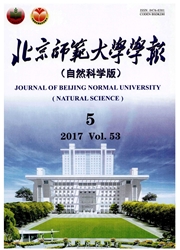

 中文摘要:
中文摘要:
单萜烯系香叶基焦磷酸(GPP)环化后的产物.其在食品化工医药能源等领域具有广泛的应用.目前,单萜烯主要从植物精油中纯化获得,因而产量受到限制.代谢工程是近来的新兴生物工程技术.通过改造代谢通路,可以实现在微生物中生产各类重要的产物.要实现单萜烯的微生物生产,除了要引入相应的萜烯合成酶外,还需要提高其上游产物,即异戊二烯焦磷酸(IPP)和GPP的供给.在本项工作中,我们首次通过放大E.coli的非甲羟戊酸途径,增加了IPP前体的合成,再结合引入GPP合酶及S-柠檬烯合成酶,实现了在细菌内生物合成S-柠檬烯.本研究为未来通过微生物发酵方法生产各类单萜烯产物提供了基础.
 英文摘要:
英文摘要:
Monoterpenes derived from geranyl pyrophosphate(GPP)have been used as food flavors,pharmaceuticals,precursors for chemical synthesis and biofuels.As extraction from essential oils is still the most commonly used method for their production,the supply of monoterpenes is limited by natural resources.Recently,metabolic engineering has been developed to re-design microbes to synthesize novel compounds,including monoterpenes.To achieve this,it is essential to increase the supply of two precursors IPP and GPP.In this work,we amplified the none-mevalonate pathway(MEP pathway)in E.coli in order to increase intracellular IPP concentration.This combined with the introduction of GPP synthase(GPPS)and S-limonene synthase led to the successful production of S-limonene in E.coli.Our results provide the foundation for manufacturing important monoterpenes in bacteria.
 同期刊论文项目
同期刊论文项目
 同项目期刊论文
同项目期刊论文
 期刊信息
期刊信息
